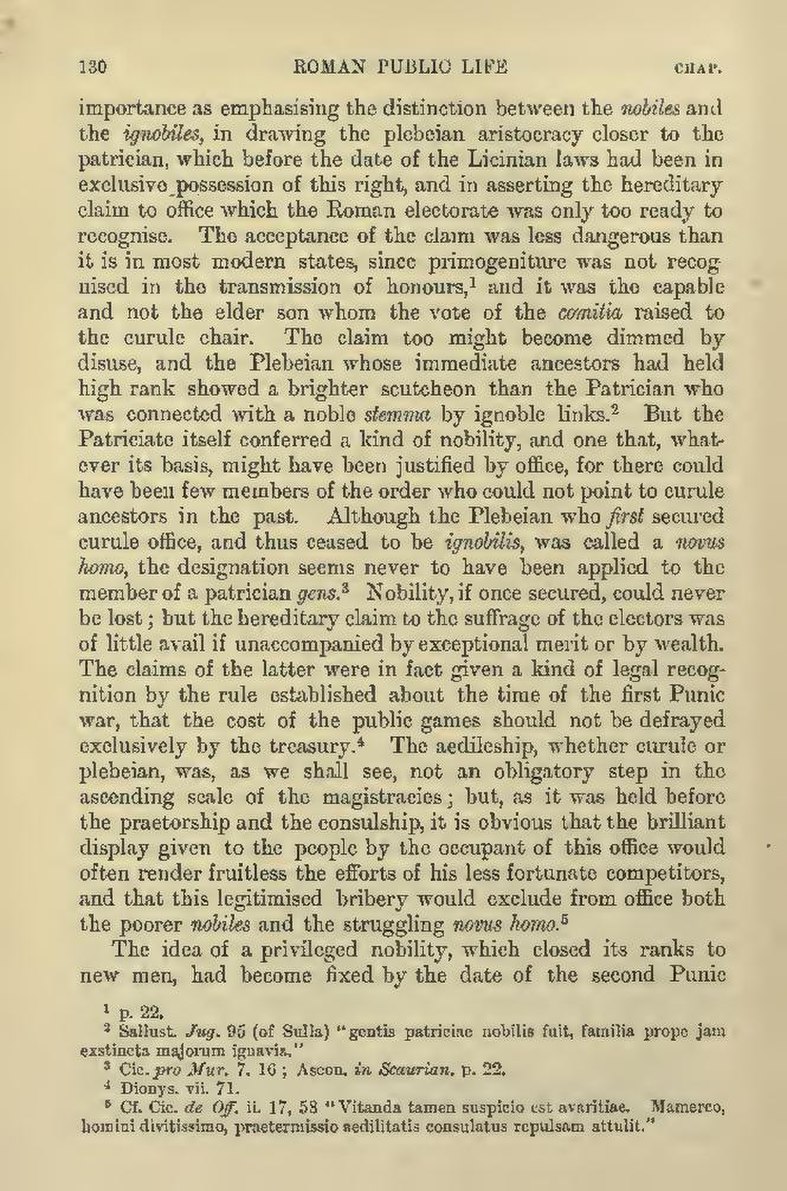importance as emphasising the distinction between the nobiles and the ignobiles, in drawing the plebeian aristocracy closer to the patrician, which before the date of the Licinian laws had been in exclusive possession of this right, and in asserting the hereditary claim to office which the Roman electorate was only too ready to recognise. The acceptance of the claim was less dangerous than it is in most modern states, since primogeniture was not recognised in the transmission of honours,[1] and it was the capable and not the elder son whom the vote of the comitia raised to the curule chair. The claim too might become dimmed by disuse, and the Plebeian whose immediate ancestors had held high rank showed a brighter scutcheon than the Patrician who was connected with a noble stemma by ignoble links.[2] But the Patriciate itself conferred a kind of nobility, and one that, whatever its basis, might have been justified by office, for there could have been few members of the order who could not point to curule ancestors in the past. Although the Plebeian who first secured curule office, and thus ceased to be ignobilis, was called a novus homo, the designation seems never to have been applied to the member of a patrician gens.[3] Nobility, if once secured, could never be lost; but the hereditary claim to the suffrage of the electors was of little avail if unaccompanied by exceptional merit or by wealth. The claims of the latter were in fact given a kind of legal recognition by the rule established about the time of the first Punic war, that the cost of the public games should not be defrayed exclusively by the treasury.[4] The aedileship, whether curule or plebeian, was, as we shall see, not an obligatory step in the ascending scale of the magistracies; but, as it was held before the praetorship and the consulship, it is obvious that the brilliant display given to the people by the occupant of this office would often render fruitless the efforts of his less fortunate competitors, and that this legitimised bribery would exclude from office both the poorer nobiles and the struggling novus homo.[5]
The idea of a privileged nobility, which closed its ranks to new men, had become fixed by the date of the second Punic
- ↑ p. 22.
- ↑ Sallust. Jug. 95 (of Sulla) "gentis patriciae nobilis fuit, familia prope jam exstincta majorum ignavia."
- ↑ Cic. pro Mur. 7. 16; Ascon. in Scaurian. p. 22.
- ↑ Dionys. vii. 71.
- ↑ Cf. Cic. de Off. ii. 17, 58 "Vitanda tamen suspicio est avaritiae. Mamerco, homini divitissimo, praetermissio aedilitatis consulatus repulsam attulit."
